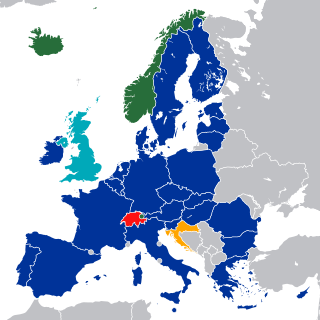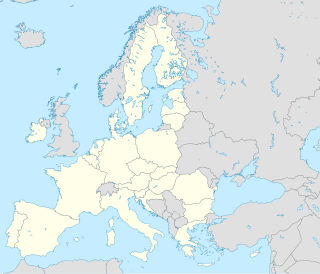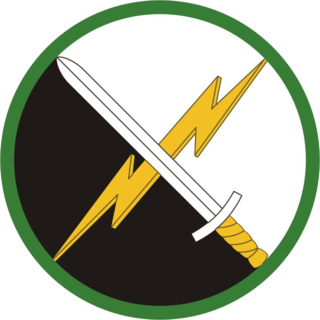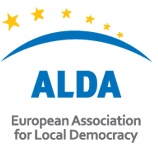This article has multiple issues. Please help improve it or discuss these issues on the talk page . (Learn how and when to remove these template messages) (Learn how and when to remove this template message)
|
| Predecessor | Heads of Agencies |
|---|---|
| Formation | 1996 |
| Type | Governmental organization |
| Purpose | Cooperation on the regulation of pharmaceutical drugs |
Region served | European Economic Area |
| Website | www |
The Heads of Medicines Agencies (HMA) is a network of both the human and veterinary medicines agencies of the European Economic Area. [1]

The European Economic Area (EEA), which was established via the EEA Agreement in 1992, is an international agreement which enables the extension of the European Union (EU)'s single market to non-EU member parties. The EEA links the EU member states and three European Free Trade Association (EFTA) states into an internal market governed by the same basic rules. These rules aim to enable free movement of labour, goods, services, and capital within the European Single Market, including the freedom to choose residence in any country within this area. The EEA was established on 1 January 1994 upon entry into force of the EEA Agreement. The contracting parties are the EU, its member states, and three EFTA member states.
Contents
The HMA co-operates with the European Medicines Agency and the European Commission (Directorate-General for Health and Food Safety) in the operation of the European medicines regulatory system. The network provides a forum for the co-ordination and the exchange of views and proposals on issues concerning the European regulatory system and the role of the national authorities within that system.

The European Medicines Agency (EMA) is an agency of the European Union (EU) in charge of the evaluation and supervision of medicinal products. Prior to 2004, it was known as the European Agency for the Evaluation of Medicinal Products or European Medicines Evaluation Agency (EMEA).

The European Commission (EC) is the executive branch of the European Union, responsible for proposing legislation, implementing decisions, upholding the EU treaties and managing the day-to-day business of the EU. Commissioners swear an oath at the European Court of Justice in Luxembourg City, pledging to respect the treaties and to be completely independent in carrying out their duties during their mandate. The Commissioners are proposed by the Council of the European Union, on the basis of suggestions made by the national governments, and then appointed by the European Council after the approval of the European Parliament. It is common, although not a formal requirement, that the commissioners have previously held senior political positions, such as being a member of the European Parliament or a government minister.

The Directorate-General for Health and Food Safety, until 2014 known as the Directorate-General for Health and Consumers, is a Directorate-General of the European Commission. The DG is responsible for the implementation of European Union laws on the safety of food and other products, on consumers' rights and on the protection of people's health. In 2006, DG Sanco launched the public Health-EU portal to provide European citizens with easy access to comprehensive information on Public Health initiatives and programmes at EU level.
The HMA, initially known as the Heads of Agencies, was established in 1995 with a first full meeting taking place in Amsterdam in February 1996. Initially the network comprised only agencies responsible for the regulation of medicines for human use. In February 1998, a parallel group bringing together the heads of agencies responsible for medicines for veterinary use held its first meeting. The two groups started organising joint meetings in 2000 and since 2004 these activities have been integrated under the umbrella of the HMA.







